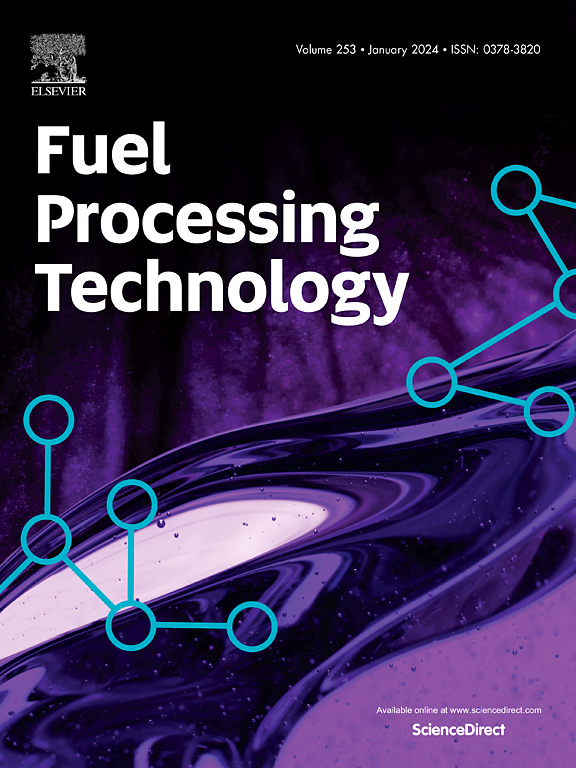Oxygen-functionalized melem as a stable heterogeneous catalyst for free fatty acid esterification in low-grade biodiesel feedstocks
IF 7.2
2区 工程技术
Q1 CHEMISTRY, APPLIED
引用次数: 0
Abstract
The feasibility of biodiesel production relies on efficiently utilizing low-grade feedstocks rich in free fatty acids (FFAs). However, high FFA content deactivates base catalysts via saponification, requiring pre-treatment with acid catalysts. This study synthesized oxygen-functionalized melem via a single-step acid treatment, employing it as a heterogeneous acid catalyst for FFA esterification. Characterization (SEM, XRD, FTIR, XPS, and solid-state 13C NMR) and density functional theory (DFT) calculations identified NO₂, NO, and CO functional groups as key acidity-enhancing sites, achieving 94.3 % oleic acid conversion. The catalyst demonstrated excellent stability over five cycles with minimal active site leaching. Sequential esterification-transesterification with acid-treated melem and Na-GCN resulted in over 90 % biodiesel conversion. DFT calculations confirmed NO₂ functionalization as the most active site (1.47 eV). Implementation in a continuous packed-bed reactor maintained stable FFA conversion for over 100 h. These results highlight oxygen-functionalized melem as a costeffective, durable catalyst for biodiesel production from low-quality feedstocks, advancing sustainable fuel processing.

氧功能化聚乳酸作为低品位生物柴油原料中游离脂肪酸酯化的稳定非均相催化剂
生物柴油生产的可行性依赖于高效利用富含游离脂肪酸的低品位原料。然而,高FFA含量通过皂化作用使碱催化剂失活,需要用酸性催化剂进行预处理。本研究通过一步酸处理合成了氧官能化melem,并将其作为FFA酯化的多相酸催化剂。表征(SEM, XRD, FTIR, XPS和固态13C NMR)和密度泛函理论(DFT)计算确定NO₂,NO和CO官能团是关键的酸性增强位点,实现了94.3%的油酸转化率。该催化剂在五个循环中表现出优异的稳定性,活性位点浸出最小。用酸处理过的melem和Na-GCN进行连续酯化-酯交换反应,生物柴油转化率超过90%。DFT计算证实no2功能化是最活跃的位点(1.47 eV)。在连续填料床反应器中,FFA的转化率在100小时内保持稳定。这些结果表明,氧功能化melem是一种高效、耐用的催化剂,可用于从低质量原料中生产生物柴油,促进可持续燃料处理。
本文章由计算机程序翻译,如有差异,请以英文原文为准。
求助全文
约1分钟内获得全文
求助全文
来源期刊

Fuel Processing Technology
工程技术-工程:化工
CiteScore
13.20
自引率
9.30%
发文量
398
审稿时长
26 days
期刊介绍:
Fuel Processing Technology (FPT) deals with the scientific and technological aspects of converting fossil and renewable resources to clean fuels, value-added chemicals, fuel-related advanced carbon materials and by-products. In addition to the traditional non-nuclear fossil fuels, biomass and wastes, papers on the integration of renewables such as solar and wind energy and energy storage into the fuel processing processes, as well as papers on the production and conversion of non-carbon-containing fuels such as hydrogen and ammonia, are also welcome. While chemical conversion is emphasized, papers on advanced physical conversion processes are also considered for publication in FPT. Papers on the fundamental aspects of fuel structure and properties will also be considered.
 求助内容:
求助内容: 应助结果提醒方式:
应助结果提醒方式:


